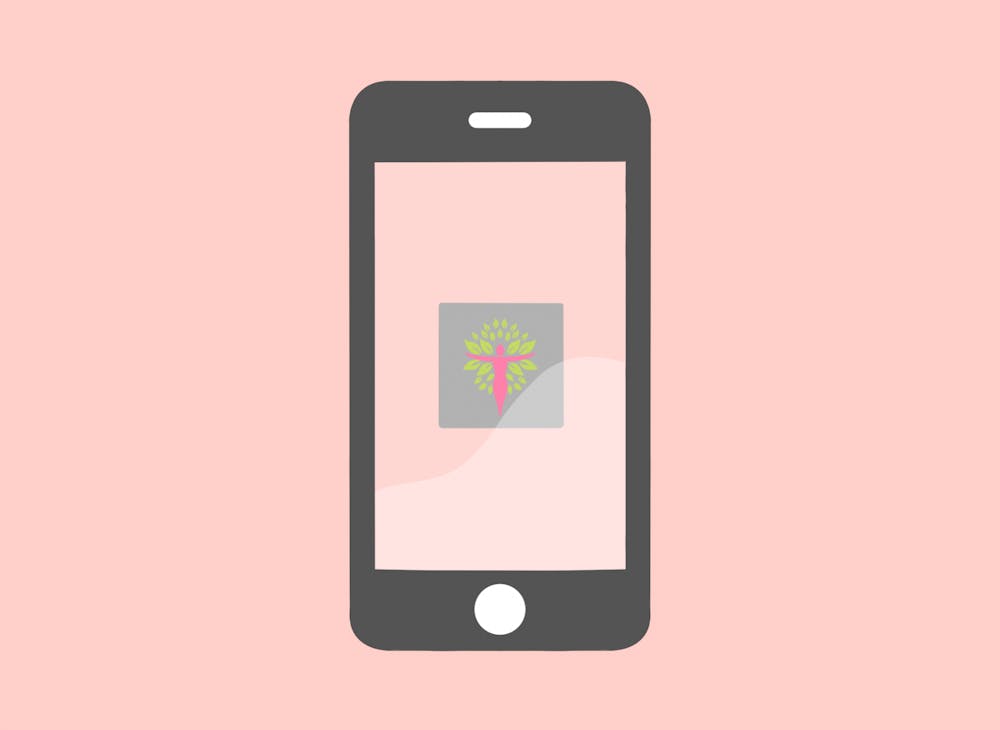Efforts spearheaded by two University professors have aided in the recent development of an app that has shown potential to curb the alarmingly high rates of cervical cancer observed in Nicaragua. Following its spring 2021 debut, the Azulado smartphone application has afforded promise that the cancer’s impact across the Caribbean nation may be stymied in the near future.
More than nine out of every 10 cervical cancer cases are caused by human papillomavirus, or HPV. Despite the large capacity for HPV screening and treatment capabilities, the World Health Organization estimated that 342,000 women died from cervical cancer in 2020 alone. Remote communities, coupled with sparse clinical resources, can create difficulties for individuals to easily access basic and advanced medical care. This rings especially true for those across Nicaragua.
Cervical cancer is Nicaragua’s leading cause of cancer death among women. In addition to the physical barriers that are present due to the isolated communities across the nation, Nicaragua has also been previously marred by low rates of general education surrounding cervical cancer and its ramifications.
Enter Assoc. Nursing Prof. Emma Mitchell, who has been working on the Caribbean coast of Nicaragua for over a decade and specifically targets the country’s southeastern region of Bluefields, home to roughly 60,000 people. Through her work, Mithcell has made concrete connections with the Nicaraguan Ministry of Health, personnel in various nonprofit and human rights organizations, clinicians in charge of vital health resources and staff at Bluefields Indian and Caribbean University School of Nursing.
Nursing Graduate student Katy Hall is a member of the research team, and said the personal nature of the relationships made by Mitchell showcases her desire to truly help the situation.
“[Mitchell] is not just dropping in because she thinks it’s a cool place,” Hall said. “She’s meeting them where they are and she’s just bringing her skills to say, ‘Let’s do this together, how can I help?’”
By creating a diverse web of influence in the area, Mitchell and her team were able to specifically identify some of the underlying causes of the elevated prevalence and mortality rate of cervical cancer seen in Nicaragua.
“There are so many barriers to getting screened [for HPV],” Mitchell said. “This is a cancer that we have great tools to prevent. Unfortunately, there’s so many women that are under-screened, and that’s where we see higher rates of late-stage diagnosis and mortality.”
Advancements made by research laboratories in partnership with WHO have curated a self-collected version of the traditional PAP screening for HPV, drastically increasing the accessibility of the disease’s screening. The app provides information on how to obtain a self-collection screen, the locations of where to send the collected specimens and educational resources on why screening is necessary.
“Our app was designed to [work with] programs … in a woman’s area,” Mitchell said. “You get information about why it’s important to test, what the test means, then once you’ve tested, you get a notification that your test result is available, you have a chat feature with your health care provider … and then beyond that, you have resources to know where to go to follow up.”
Development of the app was led by a team with Assoc. Prof. of Medicine Rebecca Dillingham, director for the University’s Center for Global Health Equity. Following targeted pilot programs in spring 2020, both the development and research teams concluded that in order to create the most far-reaching and helpful product, they would need to rely on feedback from actual users.
Anneda Rong, research team member and fourth-year College student, said obtaining feedback from women in Bluefields allowed both teams to best adapt and alter the app to their wants and needs.
“The word that we like to use [is that] it is very regionally-tailored,” Rong said. “We’re directly speaking with these patients and the users of this app, and we’re constantly in communication.”
The team ultimately views the establishment of the connections between women across the region with peers and healthcare providers as one of the pivotal, sustainable links in the defensive infrastructure against the observed high cervical cancer rates.
Cassandra Bravo-Rodriguez, research team member and third-year nursing student, stressed that these links are necessary as the fight continues and evolves in the years to come.
“We’re really creating a community of peer health educators who are going to spread this information to other women [in the community],” Bravo-Rodriguez said. “Eventually we’ll have to leave this area or leave this project, but we’ll have people in place who will continue to do this work and continue to spread the word.”
Nicaraguans will need to continue to exhibit vigilance in the coming years in their plight to reduce the nation’s cervical cancer mortality rate, but innovative solutions provided by those like the Azulado app hope to prove to be useful tools in their battle.







